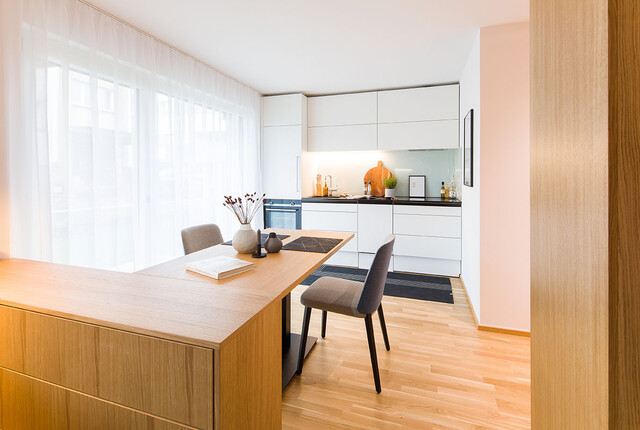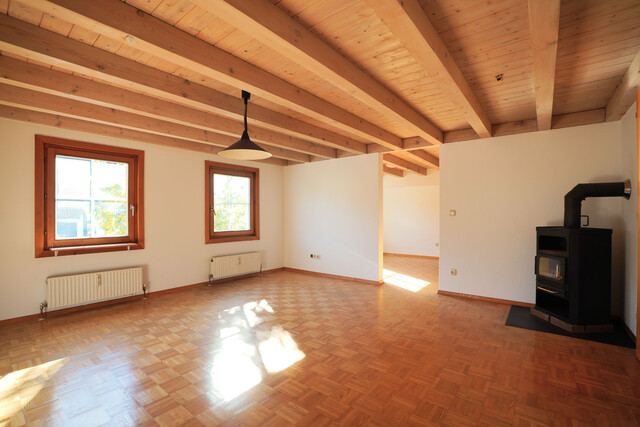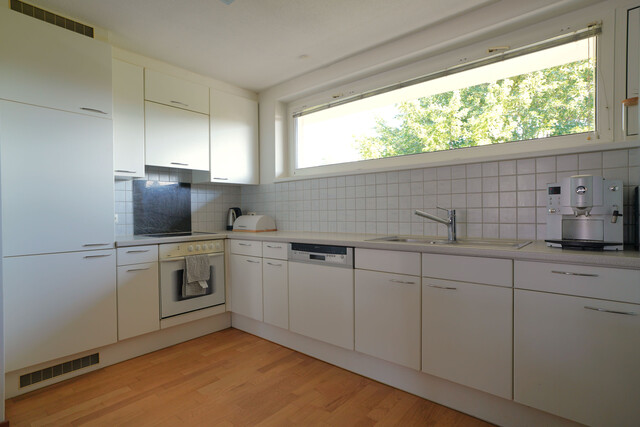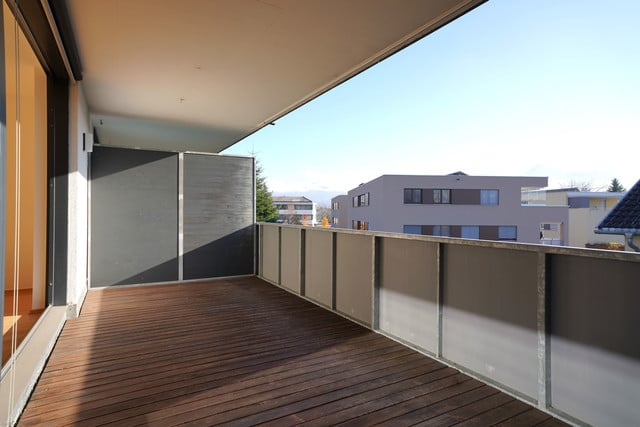Local Housing Construction Stagnates
The construction crisis affects Austria and particularly strongly Germany, according to Bursik from Baumit. In Austria, there is hardly any construction, despite population growth. New housing construction is at a standstill, with the fewest completions in 15 years. At the beginning of the year, Bursik called for the creation of more affordable housing. Annually, 40,000 to 60,000 units should be built, of which around 40 percent are still missing.
Domestic Housing: Renovation Does Not Offset Decline in New Construction
The business with cement, concrete, and building materials is sluggish. And the slight increase in the renovation sector does not offset the decline in new construction, said the company head. According to him, there are over two million buildings in this country "that need to be renovated, that do not meet thermal standards, and that consume a lot of heating and cooling energy." Climate-related improvements are not progressing quickly enough in his view. "If we continue at this pace, we won't have renovated the two million houses in 100 years," noted Bursik.
The government is currently evaluating all climate and environmental subsidies. In light of the immense budget deficit, state funding for thermal renovation is to be continued but significantly reduced. It is still unclear when funds will flow again. According to the Ministry of the Environment, the funding rate will settle at 30 percent in the future - until the end of 2024, 75 percent of the costs for replacing oil and gas heating systems were subsidized.
"The funding was relatively abruptly suspended in December," complained the Baumit head. The funding contributes to the domestic gross domestic product and maintains or creates jobs, he listed as advantages of the state fund flow. Additionally, increased renovation would avoid penalty payments to Brussels, which are required if the EU's CO2 targets are not met. "It's better to invest in Austria's economy," said Bursik.
State Subsidies with Strong Effect on Domestic Housing
"The building sector is the second-largest CO2 emitter, after transportation," emphasized Linz economist Friedrich Schneider. The renovation initiative for private individuals in 2023 and 2024 - with the renovation bonus for "individual component renovation of exterior walls" and the "Get out of Oil and Gas" program, which promoted the switch from fossil boilers to heat pumps, was "very well received." Currently, consumers are waiting to see how the subsidies will continue. The market is practically at a standstill.
Schneider highlighted the advantages of state support. "There is a considerable macroeconomic effect - since the economy is not doing so well, this is a pleasant side effect," said the economist. The total of approximately 1.5 billion euros in subsidies that recently flowed into thermal renovation triggered investments of 5 billion euros - with the 801 million euros in federal funding for facades and windows, it was 3.5 billion, and with the 739 million euros for boiler replacement, it was 1.5 billion. "The program paid off," Schneider stated. The state is doing something sensible both economically and ecologically. It also has returns through tax revenues.
Domestic Housing: "Still Enormously Much to Do"
"And it is not yet completed - especially with facade renovation, but also with boiler replacement, there is still enormously much to do, so this program should be continued," said the economist, who had taught for years at the Johannes Kepler University (JKU) Linz. One can always argue about subsidies. "Our budget has gotten out of hand, so we must save accordingly." The question is where one sees the higher ecological and/or economic dividend when it comes to cutting subsidies. "For reasons that may have been good in the past, we are subsidizing things that we no longer need to subsidize," criticized Schneider.
"State subsidies are only justified if they contribute to reducing negative external effects," the economist stated, referring to thermal renovation with less CO2 emissions and the reduced need for imports of fossil fuels. The big counterargument against subsidies is "the so-called free-rider effect." About 30 percent of the recipients would have carried out the construction measures even without money from the state. All in all, however, Schneider considers subsidies for thermal renovation to be both ecologically and economically sensible. The data and insights he cited are the result of a study he conducted on behalf of Baumit.
Promote More Differentiated
In continuing the subsidies, Schneider recommends applying more differentiated criteria for the distribution of funds. Because it is clear: "We must save." In future payments, particularly poor facades or particularly old heating systems could be the first to benefit from subsidies, the economist suggested.
Bursik also believes that the design could be refined. "It would make sense to split the subsidy pot," he said. In his opinion, the funds for thermal renovations and boiler replacements should come from different subsidy pots to prevent competition between the two subsidies. The building materials chief recommends a fifty-fifty split of the sum. According to Bursik, heat pumps only make sense if the electricity comes from renewable energy such as wind turbines or hydropower.
Furthermore, subsidies should follow the principle "Insulate first, then replace heating." "So far, the cart has been put before the horse," the company head noted. The subsidy for boiler replacement was well received by the public. "From my perspective, the lobbying work for the heat pump was quite good," Schneider affirmed.
(APA/Red)
This article has been automatically translated, read the original article here.
Du hast einen Hinweis für uns? Oder einen Insider-Tipp, was bei dir in der Gegend gerade passiert? Dann melde dich bei uns, damit wir darüber berichten können.
Wir gehen allen Hinweisen nach, die wir erhalten. Und damit wir schon einen Vorgeschmack und einen guten Überblick bekommen, freuen wir uns über Fotos, Videos oder Texte. Einfach das Formular unten ausfüllen und schon landet dein Tipp bei uns in der Redaktion.
Alternativ kannst du uns direkt über WhatsApp kontaktieren: Zum WhatsApp Chat
Herzlichen Dank für deine Zusendung.








